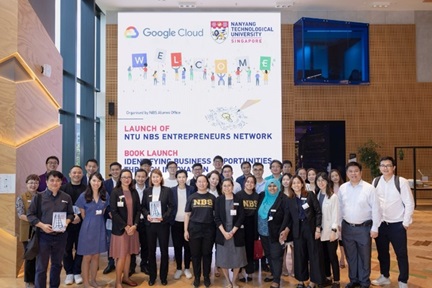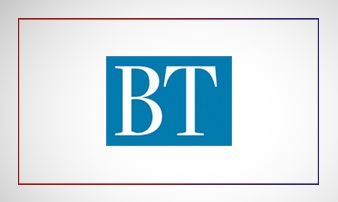Crypto at the crossroads as S'pore okays firms offering digital payment token services
The cryptocurrency revolution has been gathering pace of late and looks set to shift into a new gear in Singapore after three firms were given the green light to provide digital payment token services.
Jargon aside, it means it will soon be clearer to investors how they can trade in cryptocurrencies such as Bitcoin and Ether within regulatory guidelines and even pay for goods and services with such coins.
The Monetary Authority of Singapore (MAS) has issued digital payment token service licences to three entities - Singapore-based fintech firm Fomo Pay, Australian cryptocurrency exchange Independent Reserve and local bank DBS' brokerage arm DBS Vickers.
The three were picked from a pool of around 170 applications from digital payment token service providers although more than 30 have either been withdrawn or rejected.
More licences are expected to be granted in the coming months.
Firms that applied before July last year and are waiting for licence approval can still provide services in the meantime under an exemption.
Ms Loo Siew Yee, MAS assistant managing director for policy, payments and financial crime, said the blockchain technology behind digital assets like cryptocurrencies has the potential to significantly improve the delivery of a wide range of financial services.
But the digital payment token sector poses challenges and risks, she pointed out.
"First, it is susceptible to abuse by bad actors. Money laundering and terrorism financing risk is a key concern," Ms Loo said, noting that licence applicants must meet robust standards and implement strong controls to address such risks.
"Second, there is a risk of consumers mis-perceiving digital payment tokens as an attractive investment alternative.
"(These) are inherently highly volatile and not suitable for retail investors."
Digital payment tokens are not subject to consumer protection measures, unlike traditional investment classes such as shares, Ms Loo noted.
Mr Anton Ruddenklau, a partner and head of financial services at KPMG in Singapore and global co-leader of fintech at KPMG International, said the new licences will certainly broaden the financial service sector in Singapore.
But the growth of cryptocurrency is projected to be a long-term play, one that will require significant infrastructure investment to be ready for mass adoption.
Room to grow
Industry players noted how the growth of blockchain and cryptocurrencies has sparked heightened interest from retail investors, who are becoming increasingly knowledgeable about what seemed an impossibly technical financial niche a few years ago.
A Singapore Exchange spokesman said the cryptocurrency indices it launched last year to track Bitcoin and Ethereum, two of the largest digital currencies by market capitalisation, have been well received.
"Depending on market interest and client demand, we do see room for more of such indices, and the potential for issuers to develop investible products tracking these indices," he added.
Singapore-headquartered Fomo Pay, which was awarded a licence last month, intends to roll out a digital token payment service for merchants by the end of this year.
Its founder and chief executive, Mr Louis Liu, told The Straits Times: "In other parts of the world, more and more people have started to use digital tokens as a mode of payment. In Japan and the United States, people are already paying with digital tokens.
"My job is to make sure that when these people come to Singapore, our merchants will be able to accept their mode of payment. We should not fall behind in such technology because we are an international hub for business and technology."
Fomo Pay said its payment service will be similar to that for e-wallets or credit cards.
"For example, the merchant will key in the amount and Fomo Pay will convert it into the number of bitcoins, which will be sold in real time on our partner's cryptocurrency platform," said Mr Liu.
"The merchant will receive the fiat currency, not bitcoins."
He added that this process means merchants will not be subjected to the volatility in the value of cryptocurrency.
Meanwhile, DBS Vickers said getting a licence means it is in a better position to support institutional and corporate investors in tapping digital assets as an investment class.
DBS Vickers is a member of DBS Digital Exchange, a members-only bourse for corporate investors, accredited individuals and family offices.
Independent Reserve from Australia is the first foreign entity to be granted a licence. The crypto exchange's Singapore platform has 10 tokens listed for trading, and intends to add six to eight more by the end of October, said its Singapore managing director, Mr Raks Sondhi.
Crypto-friendly stance
Singapore is among countries seen to have taken a friendlier approach towards crypto and digital assets as it seeks to reap the benefits of innovation while safeguarding against compliance risks.
KPMG's Mr Ruddenklau said Singapore is heading towards becoming a global leader in adopting cryptocurrency for mainstream transactions, which will enhance the reputation of not just the country but also the broader financial service sector in Asia.
"Our trust quotient and access to markets across the region, our active support of technology and financial entrepreneurship, and our natural position as an open financial hub all point towards Singapore being the Asian destination for crypto," he added.
The MAS has shown a firm hand to those which do not meet its standards as well. It is among regulators that have shut the door on crypto exchange Binance, ordering its Binance.com site to stop providing payment services in Singapore.
Professor Boh Wai Fong from Nanyang Technological University's (NTU) Nanyang Business School noted that Singapore's regulations are primarily geared towards protection against money laundering and financing terrorism while maintaining a very crypto-friendly approach.
Last month, El Salvador became the first country to adopt a cryptocurrency - Bitcoin - as legal tender, although this step is still seen by most as a risky one, given the volatility of cryptocurrencies.
Mr Nizam Ismail, founder and CEO of compliance-focused firm Ethikom Consultancy, said Singapore's regulatory clarity on cryptocurrencies and digital securities is appreciated by the industry.
"There is already a bustling blockchain ecosystem here attracting exchanges, dealing desks, crypto funds, crypto investors, token issuers from all across the world, creating jobs for Singaporeans, work for professional advisers, and bringing in real value to the economy," he added.
Other countries like China have taken a harsher stance towards cryptocurrencies. Last month, it banned all transactions using private cryptocurrencies and outlawed the mining of Bitcoin, the world's most valuable digital token.
Singapore's next steps
Increased consumer awareness and a progressive regulatory framework will likely be crucial for cryptocurrency to become a bigger part of Singapore's economy.
NTU's Prof Boh said Singapore has a long way to go with regard to consumer education.
"(Singapore residents) want and need to be educated more on crypto, and retail investors are well advised to wait for it to be further regulated and stable before they can invest with peace of mind," she added.
Ms Zann Kwan, a board member of the Association of Cryptocurrency Enterprises and Start-ups, Singapore, said the Republic is on its way to becoming a global leader in cryptocurrency.
"For Singapore to do that, we need to have a network of not just major cryptocurrency exchanges, but also various cryptocurrency platforms and wallet providers, including decentralised ones and physical cryptocurrency machines," she said.
Blockchain Association Singapore co-chairman Chia Hock Lai said: "The role of traditional financial institutions will be important, due to the high level of trust accrued to them and their large customer base.
"(They could) provide safe access to crypto assets, leveraging their strong domain knowledge."
Law firm Gibson Dunn partner Robson Lee said while DBS Bank has shown the way for traditional financial institutions to play a role in shaping Singapore's digital payment tokens scene, other banks and digital bank licensees can, too, be key contributors and provide consumers with a range of options, while safeguarding customers' funds.
"At the end of the day, Singapore cannot become a location where you unwittingly facilitate money-laundering and terrorism financing activities. That's something I think MAS is cognisant of."
Source: The Straits Times





